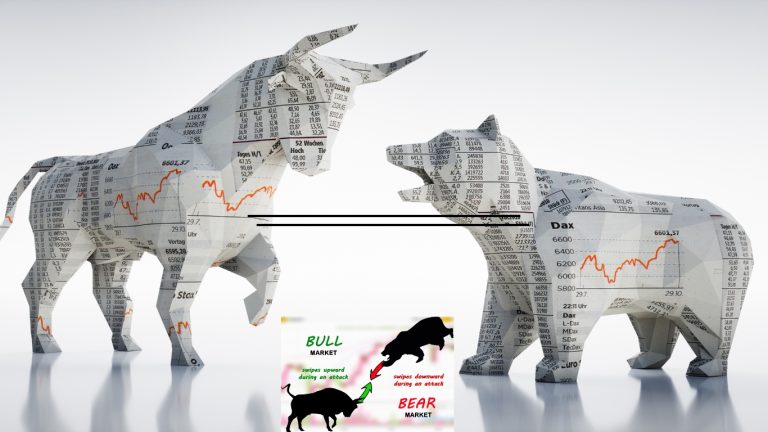Equity Derivative Futures and Options Trading: Understanding the Basics and Its Importance in the Indian Stock Market
In the fast-paced world of finance, investors and traders are constantly seeking ways to manage risks, optimize returns, and capitalize on market opportunities. Equity derivative futures and options have emerged as powerful tools within the Indian stock market, enabling participants to navigate the complexities of the financial landscape.
These financial instruments, traded on esteemed platforms like the National Stock Exchange (NSE) and the Bombay Stock Exchange (BSE), have revolutionized the way investors engage with the stock market.
Derivatives, in general, are financial contracts whose value is derived from an underlying asset. Equity derivatives specifically focus on stocks or equities as the underlying assets. They serve as valuable tools for market participants, providing avenues for hedging, speculation, and diversification.
Understanding the intricacies of equity derivatives is essential for investors. It is of paramount importance for those looking to optimize their portfolios and capitalize on market movements.
In this blog, we will delve into the world of equity derivative futures and options trading within an Indian context. We will explore the fundamental concepts, discuss their significance in the Indian stock market, and provide practical examples to solidify our understanding. By the end, readers will have a clear grasp of these financial instruments and their implications for investors and traders within the Indian stock market.
Understanding Equity Derivative Futures and Options
Equity derivatives are a common type of financial instrument whose value is derived from the price of an underlying stock or equity. These financial contracts enable market participants to gain exposure to the stock market without actually owning the underlying asset.
Instead, investors enter into a contract that obligates them to buy or sell the underlying stock at a predetermined price and time in the future. They are commonly traded in the form of futures and options contracts. Futures contracts are agreements to buy or sell the underlying asset at a future date and a predetermined price.
In contrast, options contracts provide the buyer with the right, but not the obligation, to buy or sell the underlying asset at a future date and a predetermined price. The price of equity derivatives is determined by several factors, including the current price of the underlying asset, the time to expiration, and the level of volatility in the market. Market participants use equity derivatives to manage risks, speculate on price movements, and diversify their portfolios.
With the ability to gain exposure to the stock market without owning the underlying assets, equity derivatives provide a unique opportunity for market participants to optimize their investment strategies.
Deep Dive – Futures
Futures are contracts that obligate the buyer to purchase an underlying asset at a predetermined price and time in the future.
For example, if a trader buys a futures contract for Reliance Industries Ltd. (RIL) for Rs. 2,000 with an expiry date of one month, the trader is obligated to buy RIL shares at Rs. 2,000 per share at the end of one month.
The buyer of the futures contract hopes that the price of the underlying asset will increase, which would allow them to sell the contract at a profit.
Deep Dive – Options
Options are contracts that give the buyer the right but not the obligation to buy or sell the underlying asset at a predetermined price and time in the future. There are two types of options: call options and put options.
A call option gives the buyer the right to buy the underlying asset at a predetermined price, while a put option gives the buyer the right to sell the underlying asset at a predetermined price.
For example, if a trader buys a call option for RIL at a strike price of Rs. 2,000 with an expiry date of one month, the trader has the right to buy RIL shares at Rs. 2,000 per share at the end of one month.
The buyer of the call option hopes that the price of the underlying asset will increase, which would allow them to exercise the option and buy the asset at a lower price than the market price.
Significance of Equity Derivatives in the Indian Stock Market
Equity derivative futures and options trading are important for several reasons in the Indian stock market:
- Hedging: Investors can use derivatives to hedge their risks in the stock market. For example, if an investor owns shares of RIL and is worried that the stock price may fall, they can buy a put option for RIL to limit their losses.
- Speculation: Traders can use derivatives to speculate on the price movement of underlying assets. For example, if a trader believes that the price of RIL shares will rise, they can buy a call option for RIL to profit from the price increase.
- Liquidity: Derivatives trading adds liquidity to the stock market as traders can easily buy and sell futures and options contracts without owning the underlying asset.
- Price discovery: Derivatives trading helps in price discovery as the market reflects the expectations of all traders and investors.
Examples in Our World
In recent years, equity derivative futures and options trading have gained popularity in the Indian stock market. The NSE and BSE offer a wide range of derivative products on various underlying assets.
According to the Securities and Exchange Board of India (SEBI), the total turnover in the equity derivatives segment in India was Rs. 858.60 trillion in 2020-21.
Conclusion
Equity derivative futures and options trading are important financial instruments that offer several benefits to investors and traders in the Indian stock market.
However, derivatives trading also involves significant risks and requires a thorough understanding of the market and the underlying assets.
It is always advised to make informed decisions after speaking to advisors and experts in this niche. Know your financial situation and plans for the future to make the most suitable decisions.




